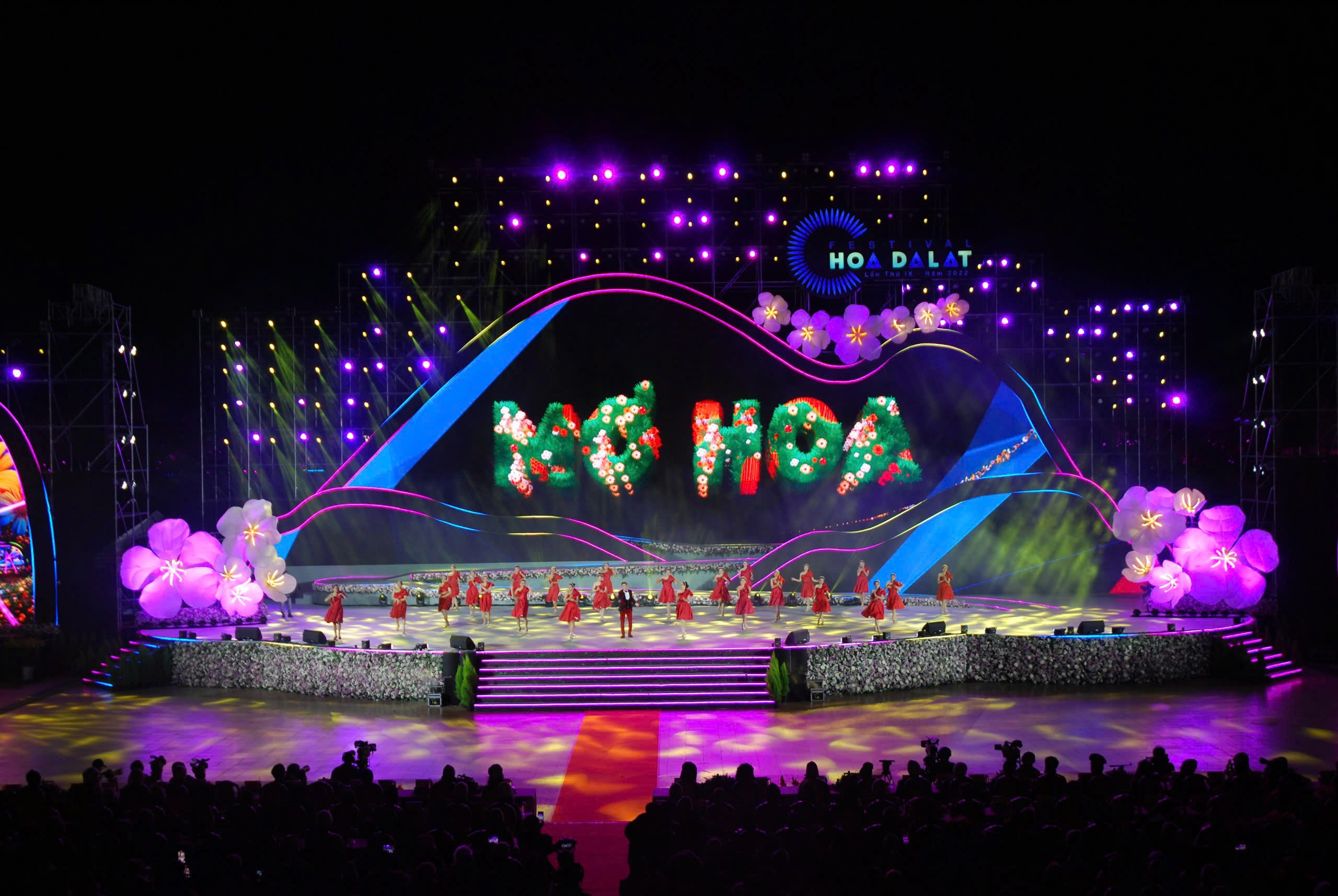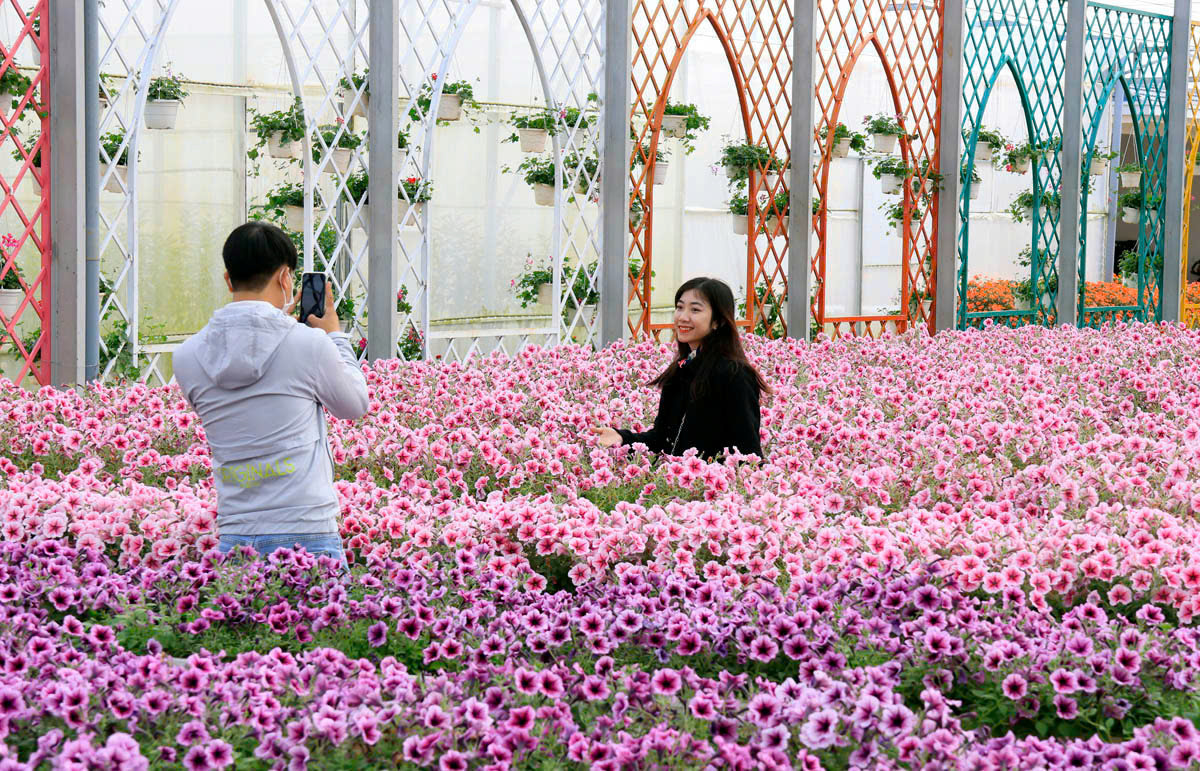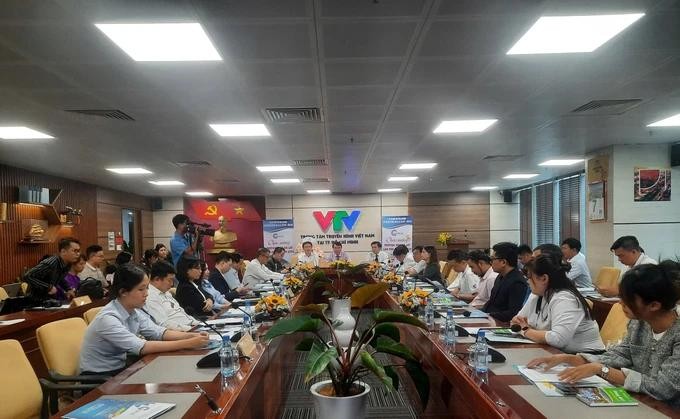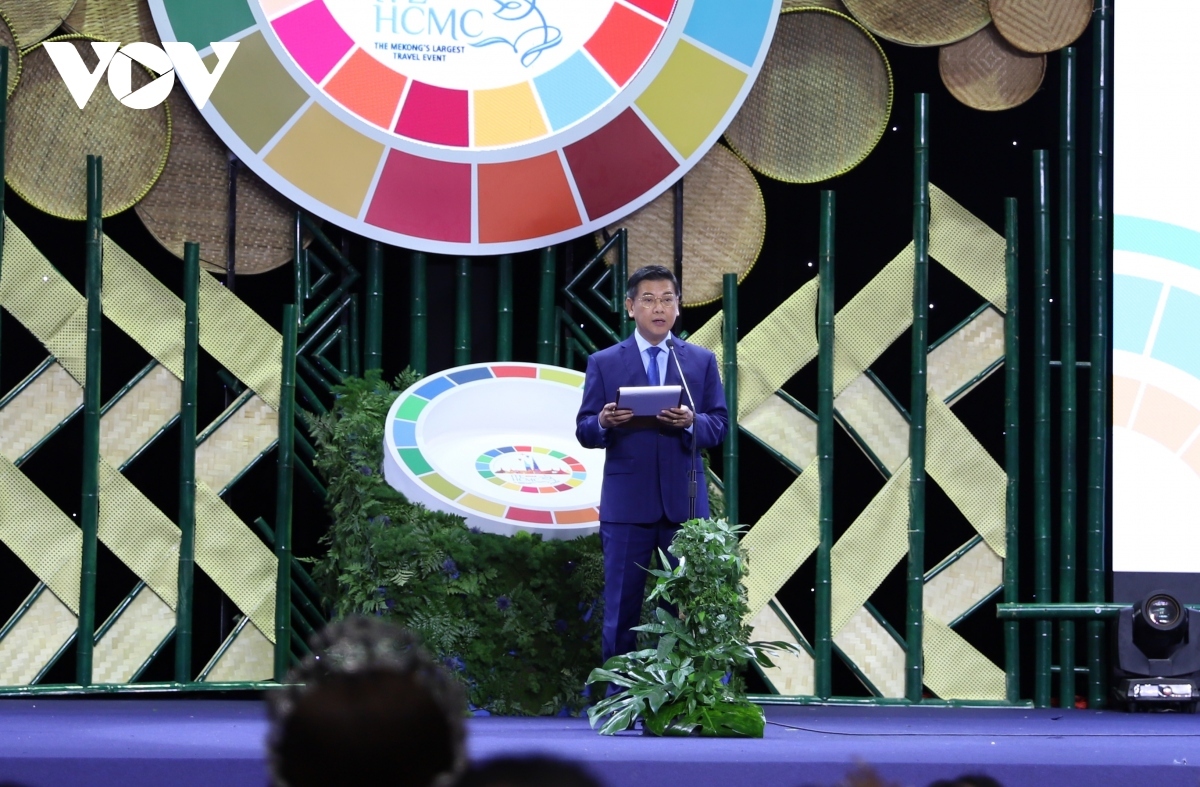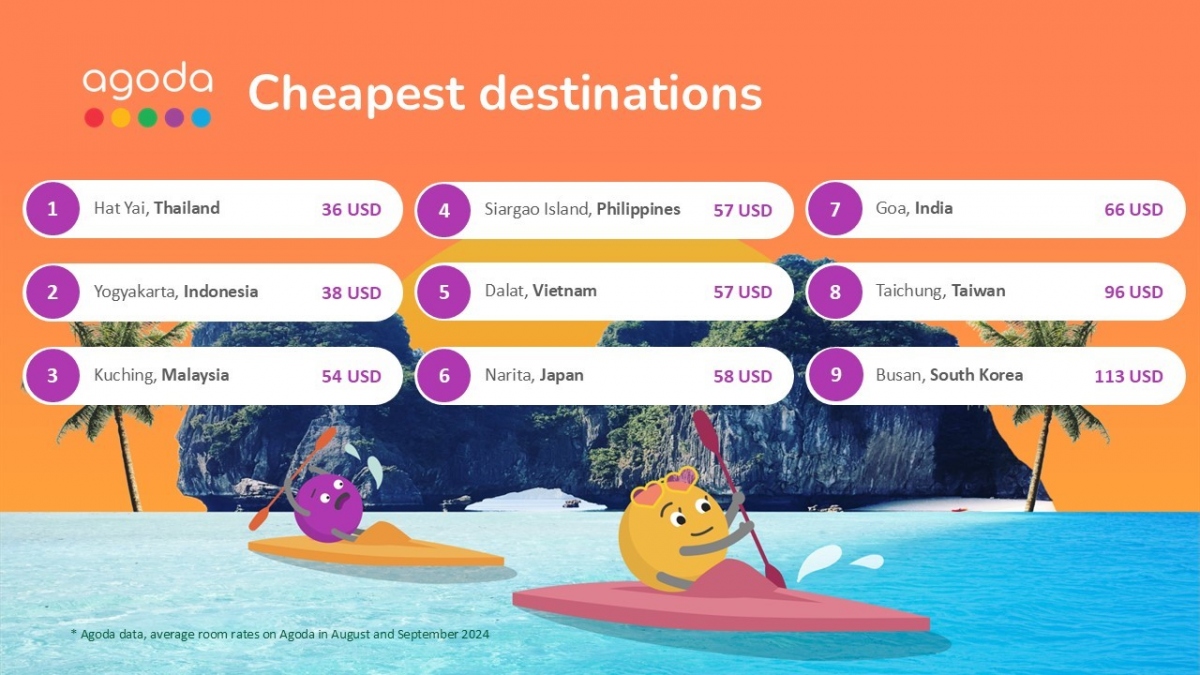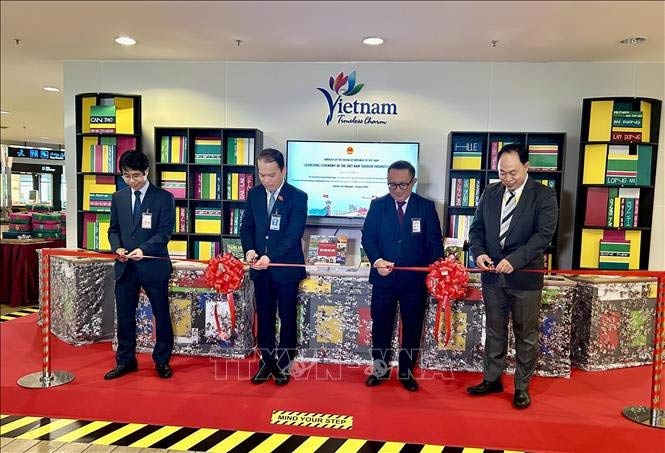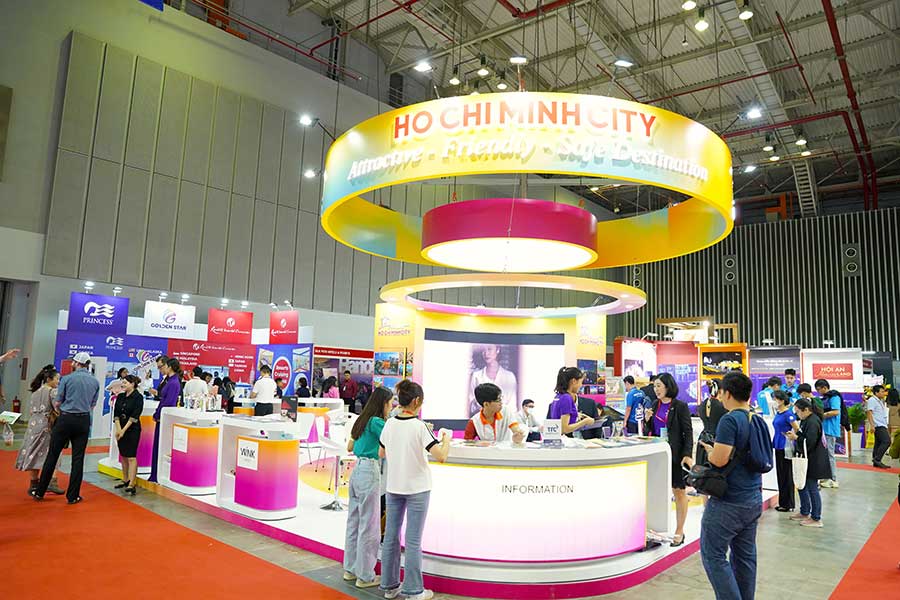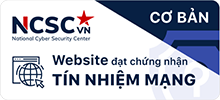VOV.VN - With the world facing plenty of challenges caused by the aftermath of COVID-19 pandemic coupled with growing geopolitical competition in the region, Vietnam-Indonesia economic links are considered to be a bright spot with impressive growth figures, steadily overcoming the headwinds of the global economy.
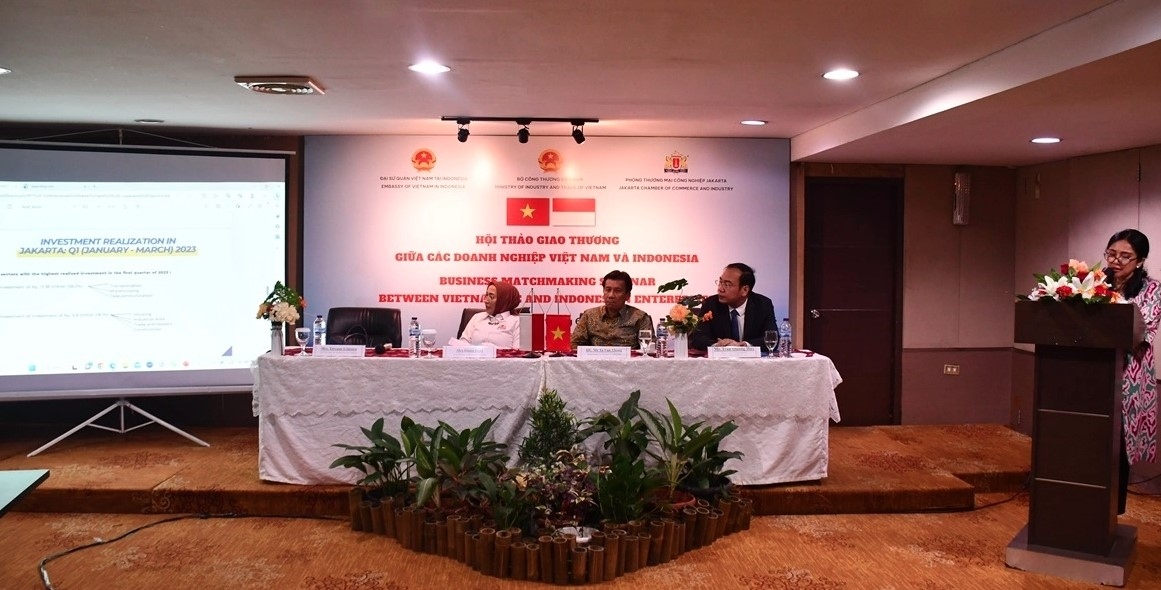
The business matchmaking seminar between Vietnamese and Indonesian enterprises in Jakarta
The sound political relations that have always been maintained and nurtured on the basis of time-tested traditional friendship in recent years, especially after the two countries entered the post COVID-19 recovery period. Indeed, economic and trade ties between the two countries have achieved impressive growth, continuously surpassing new milestones and moving in a more balanced direction.
Bilateral trade turnover increased from US$8.20 billion in 2020 to US$14.17 billion in 2022, with Indonesia becoming the third largest export market and the second largest import market of Vietnam in ASEAN in 2023. In particular, the investment sector has seen numerous improvements.
By the end of November, 2023, Indonesia’s total investment capital in the Vietnamese market had reached US$651.21 million, with 120 valid projects, marking an increase of two projects with an additional capital of US$4.71 million in 2023 to rank 29 out of 143 territories with investment capital in the nation.
Many Indonesian groups and companies are investing and conducting business successfully in the country such as Ciputra, Traveloka, Gojek, PT Vietmindo Energitama, Jafpa Comfeed Vietnam, and Semen Indonesia Group.
According to Ciputra Group Managing Director Budiarsa, the nation currently has huge potential for investment as it has a fairly large population compared to others in ASEAN. The nation has also seen stable economic development in recent times, becoming the fastest growing economy in the regional bloc, he said, adding that Ciputra is also considering new investment co-operation projects in the Vietnamese market.
In the opposite direction, a number of major Vietnamese businesses and groups already have a presence in Indonesia, while other firms are also completing investment procedures in this market.
Most notable is Vinfast Global's project with a total estimated investment capital of US$1.2 billion to build an electric vehicle factory in Indonesia with a capacity of 50,000 vehicles annually. Construction work on the facility is expected to start in the first quarter of 2024 and will be completed in 2026.
With potential and strengths, both countries' leaders have agreed to bring two-way trade to reach the target of US$15 billion by 2028. Vietnamese Ambassador to Indonesia Ta Van Thong has expressed his complete optimism about this goal.
“The set target is based on the determination of the two governments and the potential of both sides. The population of both nations accounts for 60% of ASEAN's population with a total of nearly 400 million people. Vietnam and Indonesia are both members of the ASEAN Free Trade Area (AFTA) and the Regional Comprehensive Economic Partnership (RCEP) so they have many advantages to increase two-way trade. Amid the global trade economy continuing to face plenty of difficulties, bilateral trade continues to be a bright spot with a growth rate of about 10% per year. Therefore, the ability to reach the target of US$15 billion is a very realistic prospect in the next few years," Ambassador Thong assessed.
Vice Chairwoman of the Indonesian Chamber of Commerce and Industry (KADIN) Shinta Widjaja Kamdani also expressed her confidence that the bilateral turnover target of US$15 billion by 2028 is completely achievable. However, there remains a lot of work that both sides need to do in order to optimise bilateral trade, especially when both countries are members of ASEAN.
The two governments need to continue to connect and offer optimal conditions in which enterprises can intensify their operations, she went on to say.
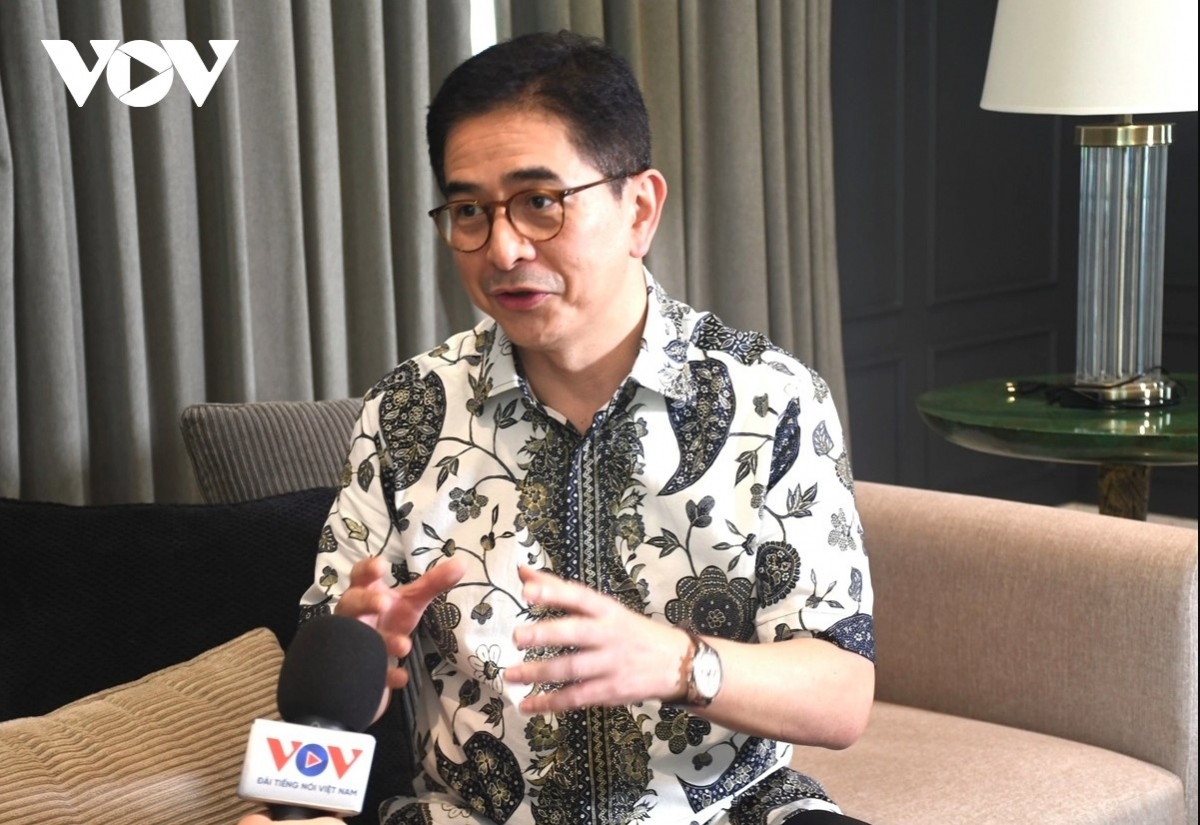
Arsjad Rasjid, former president of the Indonesian Chamber of Commerce and Industry (KADIN) highlights electric vehicle manufacturing as a potential area of cooperation between the two countries.
To further enhance two-way trade, both parties are in the process of co-ordinating with each other to convene the eighth Joint Economic and Trade Committee soon with a view to proposing measures to bolster economic and trade ties.
Exploring new areas of co-operation
Currently, one of the prominent trends in the world is to strengthen linkages on climate change response. In the process of implementing international commitments, the two countries can co-operate closely in the fields of energy conversion, carbon storage, renewable energy development, green energy, and sustainable green economic development.
Arsjad Rasjid, former president of KADIN, highlighted the field of green energy, specifically electric vehicles, as a potential area to develop collaboration between the two countries.
He said he believes that the two side can foster links to create synergy in the production of batteries and components. Indonesia also has many fields that they can invite Vietnam to co-operate in moving forward.
Under the impact of climate change, food security is becoming a great concern for many countries, especially countries with big populations such as Indonesia and Vietnam.
Both nations boast complementary strengths in long-standing production and resources for agriculture and fisheries, thereby helping to create a complete value chain.
The two sides need to make greater efforts in a bid to promote existing mechanisms in ASEAN, while also studying the signing of a new agricultural co-operation agreement under which, specific collaboration projects to develop livelihoods for farmers can be carried out to ensure food security, whilst also promoting the trade and economic development of each nation.
Regarding rice products, the Vietnamese side is always in the top three rice suppliers to the Indonesian market. As of November, 2023, the country has shipped more than 1.1 million tonnes of rice to Indonesia, worth more than US$600 million.
Regarding seafood and fisheries, the two sides continue to promote recent exchanges on commodity groups such as lobster, tuna, and seaweed, as well as stepping up ties between businesses, associations, and fishermen of the two countries to develop fisheries in a sustainable way.
Tourism is also a potential field in which to promote ties between the two sides based on the natural landscape and tourism economy that is on the path to recovery and strong development.
Along with restoring direct flights after a period of disruption, in 2023 VietJet Air opened more new routes, including Ho Chi Minh City - Jakarta and Hanoi - Jakarta. This is a favourable condition for the two sides to work together in developing signature tourism products, connecting destinations, while also improving and creating new eco-friendly tourism products.
Amid the challenging and unpredictable global economic context of 2023, the fact that both sides maintained growth rates and strong bilateral economic relations is impressive. This is important not only for each country itself, but also contributes to improving the economic resilience of ASEAN as a whole to withstand fluctuations and unfavourable external impacts.
Indonesian President Joko Widodo's state visit to Vietnam from January 11 to January 13 is considered to be an impetus in elevating the relationship to a new level across multiple areas, including bilateral economic and trade co-operation.




